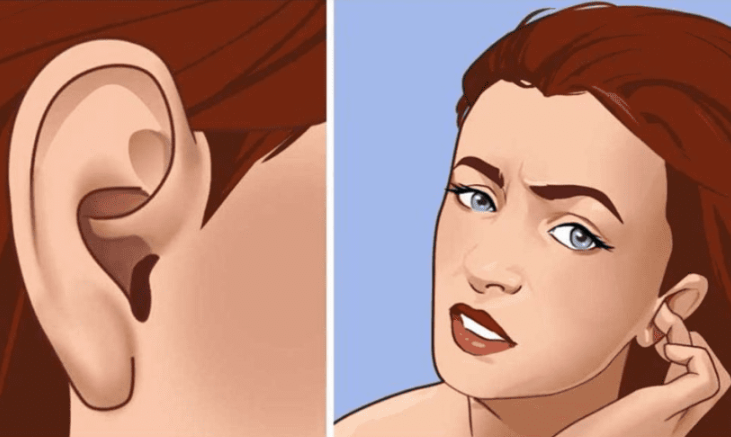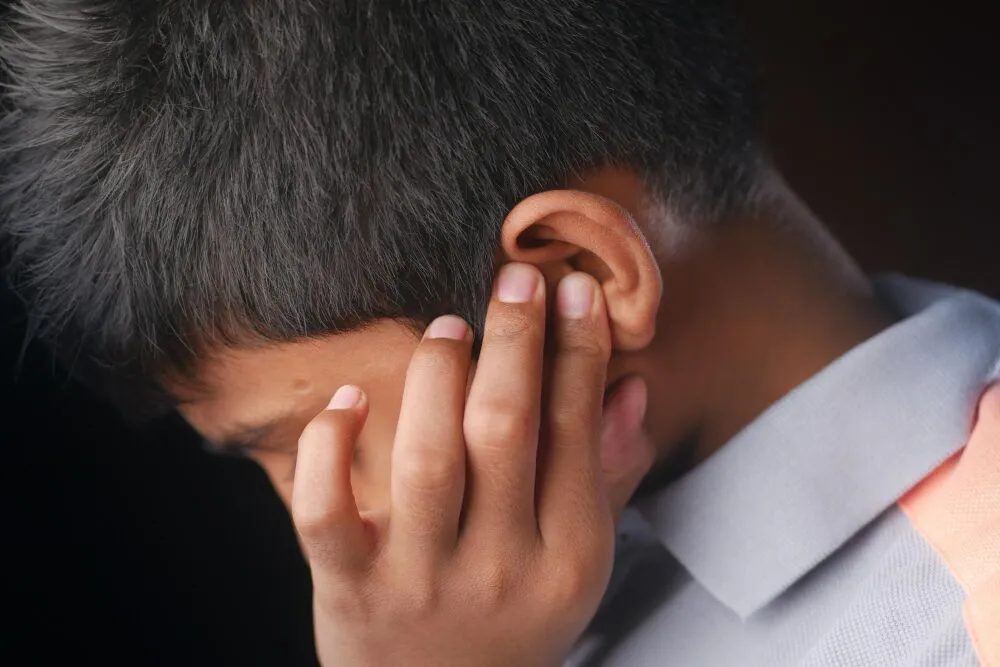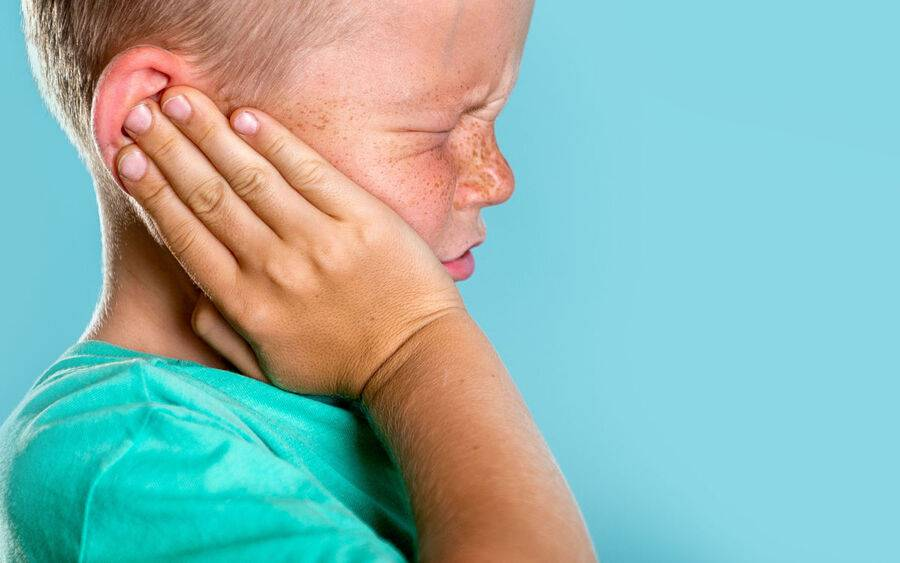Itchy ears can be an incredibly frustrating and distracting experience. Whether it’s a mild tickle or a persistent irritation, the sensation often leads us to wonder: what’s causing this discomfort, and how can we stop it? Understanding the underlying reasons behind itchy ears can help you take action to relieve the irritation and prevent future episodes. While ear itching is common, it could sometimes be a sign of something more serious, and knowing when to seek treatment is crucial.
Common Causes of Itchy Ears
1. Earwax Buildup

One of the most common reasons for itchy ears is earwax buildup. While earwax (also known as cerumen) plays a crucial role in protecting your ear canal by trapping dirt, dust, and other particles, too much of it can lead to blockages. When earwax accumulates excessively, it can cause irritation and an intense itching sensation.
Many people attempt to clean their ears using cotton swabs, but this often makes the problem worse. Cotton swabs tend to push the wax further into the ear canal, compacting it and increasing the irritation. In some cases, this buildup can even result in hearing problems or discomfort.
2. Dry Skin Inside the Ear
Just like other parts of your body, the skin inside your ear can become dry and flaky. Dry skin in the ear canal can be caused by a lack of moisture in the environment, or it could be linked to skin conditions like eczema or psoriasis. When the skin inside your ear dries out, it can lead to relentless itching that seems impossible to relieve.
If dry skin is the culprit, the itching can feel particularly intense, as the ear canal is a sensitive area. You may also notice flakiness or peeling skin inside the ear, which only adds to the discomfort.
3. Infections in the Ear
Infections are another common reason for itchy ears. Otitis externa, often referred to as swimmer’s ear, occurs when bacteria or fungi invade the ear canal. This often happens when water gets trapped inside the ear after swimming or bathing, creating a moist environment where bacteria thrive. Itching is often one of the earliest signs of this infection, which can progress to pain and swelling if left untreated.
Inner ear infections can also cause itching as an initial symptom. These infections can arise from bacteria or viruses and are sometimes linked to respiratory infections. If itching is accompanied by pain, drainage, or swelling, it’s essential to seek medical attention right away.
4. Allergic Reactions
Sometimes, the products we use on our bodies can cause an allergic reaction inside the ear canal. Shampoos, hair sprays, and even certain hearing aids or earplugs can trigger contact dermatitis, leading to itching, redness, and irritation. If your itchy ears coincide with the use of new personal care products, it’s worth considering whether an allergic reaction may be to blame.
5. Foreign Objects or Irritants

It’s not uncommon for small objects, such as dust, dirt, or even insects, to make their way into the ear canal, causing irritation and itching. Additionally, over-cleaning or the use of earplugs and earbuds can lead to minor abrasions inside the ear, which may cause itching as they heal.
Effective Treatments for Itchy Ears
1. Proper Ear Cleaning
The temptation to clean your ears with cotton swabs can be strong, but doing so can cause more harm than good. Instead of swabs, use ear drops designed to soften and remove earwax. These over-the-counter solutions help the ear’s natural cleaning process, allowing excess wax to be expelled without pushing it deeper into the canal.
For significant earwax buildup, it’s always best to consult a healthcare provider. They can perform safe and effective earwax removal techniques, such as irrigation or manual extraction, to prevent further irritation.
2. Moisturizing Drops for Dry Skin
If dry skin is the cause of your itchy ears, moisturizing ear drops or natural oils can provide relief. Olive oil, mineral oil, or specially formulated ear drops can hydrate the ear canal and reduce the itching. Apply a few drops into the affected ear, usually before bed, and let the oil coat the inside of the ear.
Make sure you follow the instructions on any over-the-counter product, and avoid inserting anything too deep into the ear. Consistent moisturizing can help alleviate the dryness and prevent future episodes of itching.
3. Treating Ear Infections

If your itchy ear is due to an infection, it’s important to seek medical advice to prevent the problem from worsening. A doctor may prescribe antibiotics for bacterial infections or antifungal medications for fungal infections.
Infections like swimmer’s ear can be particularly uncomfortable, so starting treatment early is key to reducing symptoms like itching, pain, and swelling. Always complete the full course of medication, even if symptoms begin to subside, to ensure that the infection is fully eradicated.
4. Addressing Allergic Reactions
If you suspect an allergic reaction is behind your itchy ears, try eliminating any new products you’ve recently introduced into your routine. This could include shampoos, conditioners, or styling products. If you wear hearing aids or earplugs, make sure they are cleaned regularly and made from materials that won’t irritate your skin.
Once the allergen is removed, the itching should subside. In some cases, applying a topical antihistamine or corticosteroid cream (as recommended by a doctor) may help reduce itching and inflammation.
5. Avoiding Irritants and Foreign Objects
To prevent foreign objects or irritants from causing itchy ears, take precautions when using earplugs, headphones, or earbuds. Ensure they are clean and properly fitted to avoid causing friction or introducing dirt into the ear canal. If you work in dusty environments, consider wearing protective gear to keep particles from entering your ears.
If an insect or other foreign object is causing the itching, it’s important not to attempt to remove it yourself. Instead, seek medical assistance to prevent any damage to the ear canal.
When to See a Doctor

While occasional ear itching is usually harmless, persistent or severe itching can be a sign of a more serious issue. If you experience any of the following symptoms alongside the itching, it’s time to consult a healthcare professional:
- Ear pain or discomfort
- Swelling or redness in or around the ear
- Fluid drainage from the ear
- Hearing loss or a feeling of fullness in the ear
A doctor will be able to properly diagnose the cause of the itching and recommend the appropriate treatment to prevent complications.
Conclusion: Take Care of Your Ears for Long-Term Health
Itchy ears are more than just an annoyance—they can be a sign that something isn’t quite right with your ear health. Whether it’s due to earwax buildup, dry skin, infections, or allergens, understanding the root cause of the itch can help you find effective relief. By following proper ear care routines and seeking medical advice when necessary, you can maintain healthy ears and avoid discomfort in the future.
So, the next time your ear itches, don’t ignore it. Listen to what your body is telling you and take the necessary steps to keep your ears in tip-top shape!


